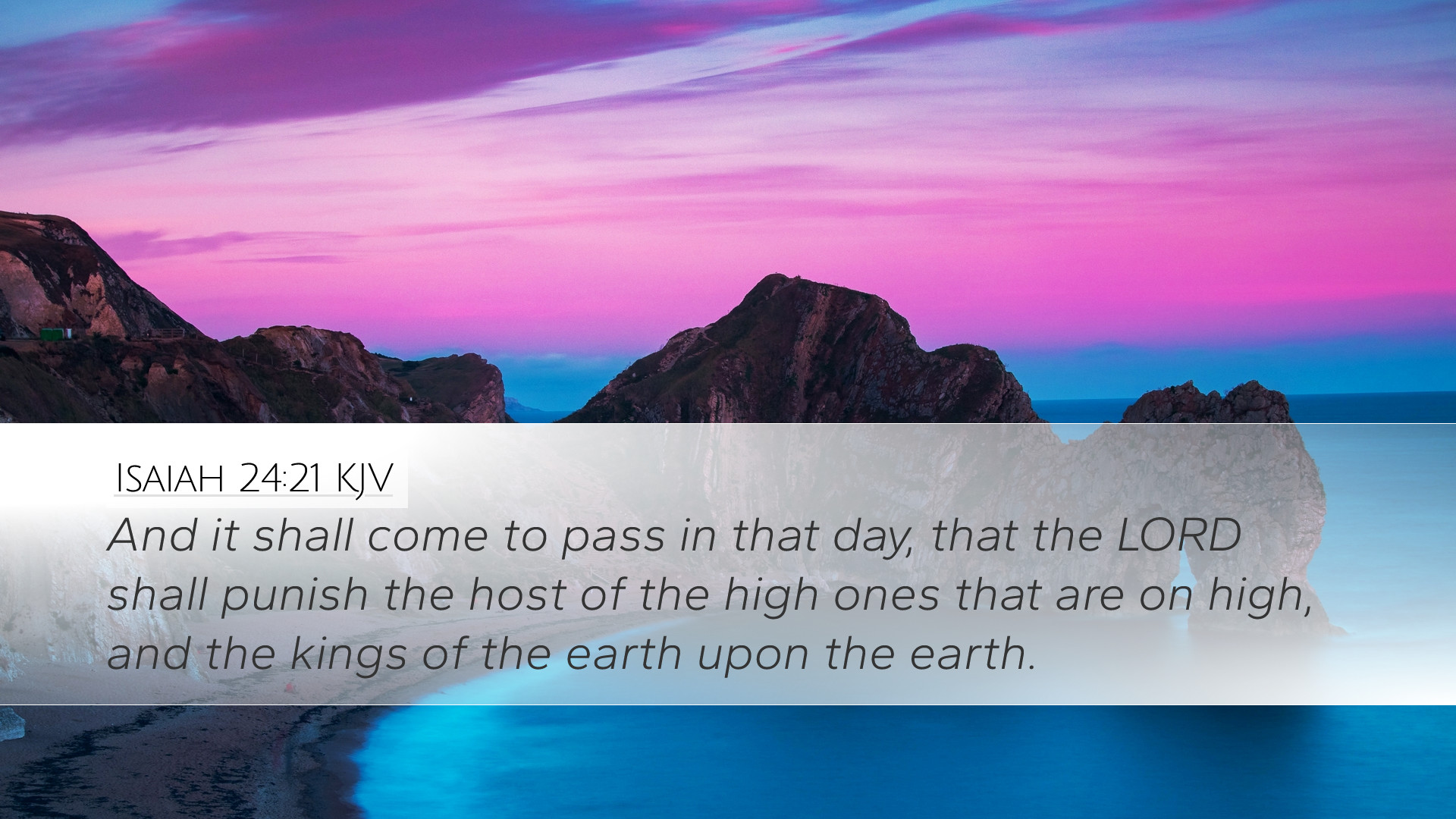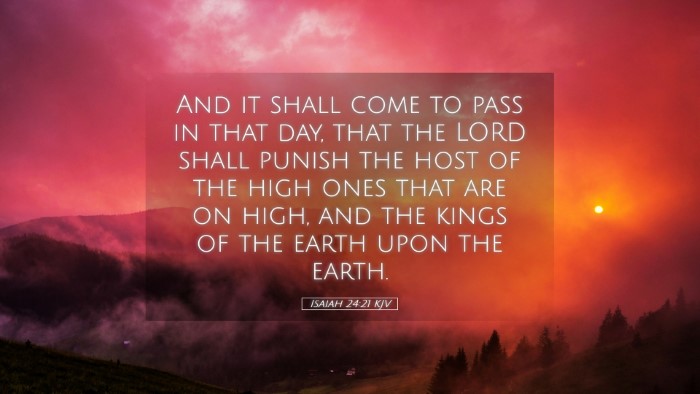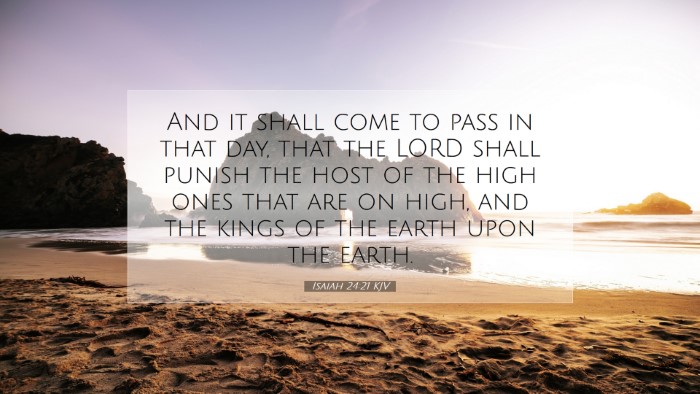Commentary on Isaiah 24:21
Isaiah 24:21 states:
"And it shall come to pass in that day, that the Lord shall punish the host of the high ones that are on high, and the kings of the earth upon the earth."
This verse serves as a crucial statement in the context of the broader themes present in the Book of Isaiah, particularly regarding judgment, the sovereignty of God, and the ultimate triumph over evil powers. The commentaries below synthesize insights from various public domain sources to elaborate on this profound verse.
Contextual Analysis
Isaiah 24 marks a pivotal chapter in the prophetic literature, often referred to as the "little apocalypse." It details a time of universal judgement and the consequences of sin, not only for Israel but for the whole earth.
Matthew Henry emphasizes that this judgment is not arbitrary but a necessary fulfillment of God's righteousness. He notes that “the high ones” likely refer to spiritual entities, representing the spiritual influences that lead to sin and rebellion against God.
Albert Barnes expands on this idea by asserting that “the kings of the earth” represent earthly powers and rulers who have oppressed the people of God. Barnes explains that Isaiah frequently depicts God’s judgment not only as punitive but also redemptive, aiming to restore peace and righteousness on earth.
Thematic Exploration
The Sovereignty of God
The verse fundamentally asserts God's sovereignty over both heavenly and earthly powers. Adam Clarke notes that the phrase “the host of the high ones” can refer to celestial beings, indicating that God will not only judge the wicked on earth but also the rebellious spiritual forces that influence them.
This dual judgment illustrates that all authority, whether divine or earthly, is ultimately subject to God’s will. This emphasizes the comprehensive nature of divine authority, highlighting that no realm is outside of God’s jurisdiction.
The Nature of Judgment
The judgment described in Isaiah 24:21 serves several roles:
- Correction: As mentioned by Matthew Henry, God's punishment serves as a corrective measure for high and low alike, bringing them back to righteousness.
- Justice: This action by God restores justice that has been perverted by earthly rulers and evil spirits, as pointed out by Albert Barnes.
- Hope: The proclamation of God's impending judgment is ultimately a message of hope, highlighting that God will not permit injustice and evil to prevail indefinitely.
Comparative Analysis
When comparing this verse with themes in other biblical passages, a pattern emerges regarding God's judgment. For instance, in Revelation 20:10, the final judgment reaffirms God's authority over Satan and his forces, showing a continuity in the biblical narrative regarding the fate of evil.
Albert Barnes draws parallels between Isaiah 24 and the New Testament, indicating that just as the wicked were judged in the past, so will those who oppose God in the future face a similar fate.
Implications for Believers
Isaiah 24:21 carries significant implications for contemporary believers. It serves as a reminder:
- Believers are called to recognize the temporality of earthly power and the eternal authority of God.
- There is a moral obligation to stand against injustice in all forms, emulating God’s righteousness.
- The assurance of God's ultimate victory offers hope in times of trial and opposition.
Conclusion
In summary, Isaiah 24:21 encapsulates profound truths about God's judgment and sovereignty over all creation. Insights from public domain commentaries by Matthew Henry, Albert Barnes, and Adam Clarke expose the depth of this verse, reminding readers that both earthly and heavenly powers will be held accountable to God.
This understanding serves as both a warning and a source of comfort for those who seek to live righteously under God’s authority. As we anticipate the day when God will definitively establish His kingdom, the message of Isaiah remains relevant and transformative today.


